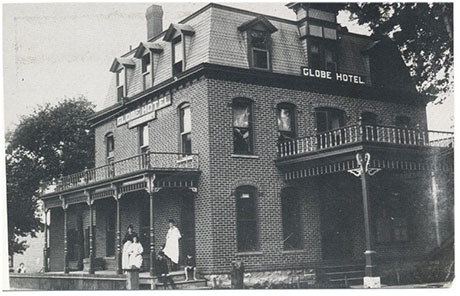
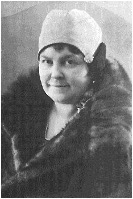
Edna Geyer was born on July 28, 1882, into a poor family in Buffalo, NY. By the age of 13, she began working in a barroom scrubbing floors. At the age of 15, Edna married Joseph Gruber and had a daughter, Florence in 1901.
In 1935 Edna's daughter Florence died in an accidental fire in Sandusky, Ohio. The death of her daughter was traumatic for Edna. Florence had two children, William and Edna, ages five and three. They moved into the Palace Hotel to live with their grandma, the infamous Edna, upon their mother's death.
It was difficult for young Edna to lose her mother, move to Batavia and live with her grandmother. When young Edna's father Charles returned to Batavia to find his wife and children, Grandma Edna took him to the cemetery and pointed to her daughter Florence's headstone. When Charles wanted to take his children back with him, Edna had him beaten and implied that if he didn't leave town now, then he never would.
Edna was a powerful woman. She had connections and was not afraid to use them. As a result, Charles seldom saw his children, except when Edna went to prison for a year for "operating a disorderly house." At that time, Edna asked Charles to come to Batavia and run the Palace Hotel until she returned.
Edna, as the grandmother, was obsessively clean and neat. She maintained an immaculate house, scrubbing the kitchen floor and bleaching the sidewalk every single day. She was not your stereotypical madam or your demonstrative loving grandma. She was an alcoholic and would be drunk for days on end. As a petite woman of 5 feet stature, she raised her grandchildren with very high morals. Her grandchildren were completely separate from Edna's prostitution business. Her grandchildren said, "She tried very hard to save us from hurt. She didn't care if people respected her, but they had to respect her grandchildren." The children were never told what went on at the Palace Hotel.
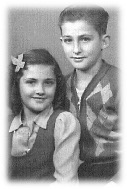
It was challenging to grow up in the Palace Hotel. Other children ostracized young Edna. If Edna thought her granddaughter was being shunned by her classmates, she had no trouble calling the family and asking the parents if their child had a problem walking to school with her granddaughter. Just hearing the threat in her voice was enough to instill fear in her granddaughter's classmates. Ultimately, Edna wanted to save young Edna and Bill from hurt.
Edna was a shrewd businesswoman. When the earnings from the Palace were divided, she took fifty percent of the profits for herself, and 50 percent went to the girls to be shared with their pimps.
Young Edna and her brother, Bill's lives, were a contradiction. On the one hand, Grandma Edna was very generous with gifts, but on the other hand, she had young Edna work on the muck to earn money for school clothes.
The Edna the public knew was different from the madam. Edna's generosity to children in the area was legendary. In the 20s, Edna noticed three young girls living near the New York Central railroad in squalor. She took the girls home, cleaned them up, fed them, found homes for the older children, and adopted the youngest.
Rather than Edna the madam from Jackson Street, you heard stories about Edna taking care of the less fortunate. At Christmastime, she would spend hundreds of dollars on toys for children at the Children's Home, the local orphanage in Batavia. She was known for purchasing communion dresses and suits for needy children of the neighborhood. She told sales clerks at Thomas and Dwyer to be on the lookout for children walking to school barefoot. She would ask that they be fitted for shoes, and then she would pay the bill. Edna would send men into McAlpine and Barton in need of a warm suit, and again, the clerks would fit that person and send the invoice to Edna. She also bought uniforms for the police and fire departments.
Yes, Edna had politicians in her back pocket and probably was connected to the Mafia. She knew how to outsmart the local police and could be very strict and often cold. However, most stories about her described her generosity. She believed that you did not hurt someone who was already down but rather should help them.
Edna died in 1953. Her granddaughter, young Edna, found her in their living room slumped over a chair. The Palace Hotel was left to Edna and her brother Bill. Today the building has been sided and made into apartments. If only the walls could talk!
Photographs are courtesy of Edna's Gruber's Family and the Holland Land Office Museum.
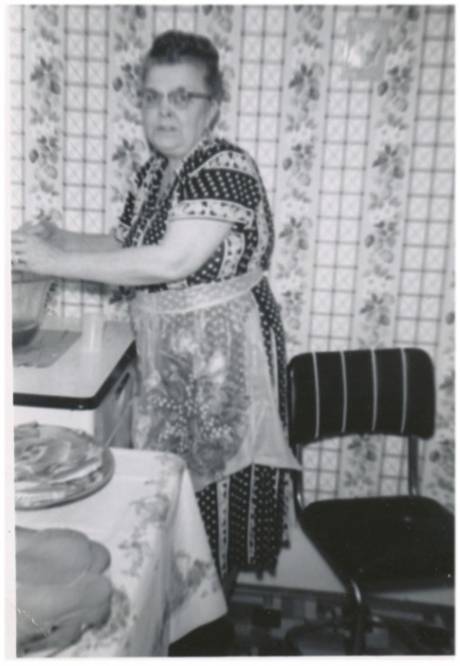
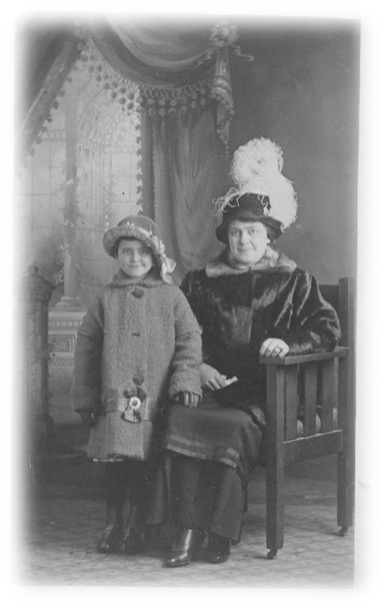

Where was this hotel?
Where was this hotel?
My Father, who is now gone,
My Father, who is now gone, use to relate stories of Edna's Place as he worked at and retired from the New York Central Railroad. A lot of his fellow workers use to frequent this establishment on a regular basis. Being a family man with a wife and four sons, it was strictly off limits to him. However he would always praise Edna for her generous ways to the less fortunate of the community.
The hotel was located on the
The hotel was located on the corner of Jackson Street and Ellicott St. The building has been turned into apartments.
Great story!
Great story!